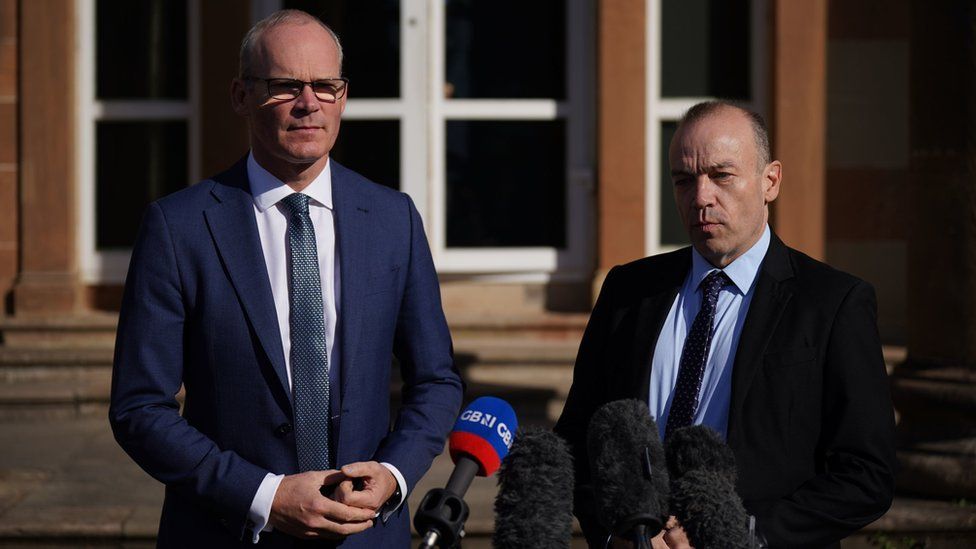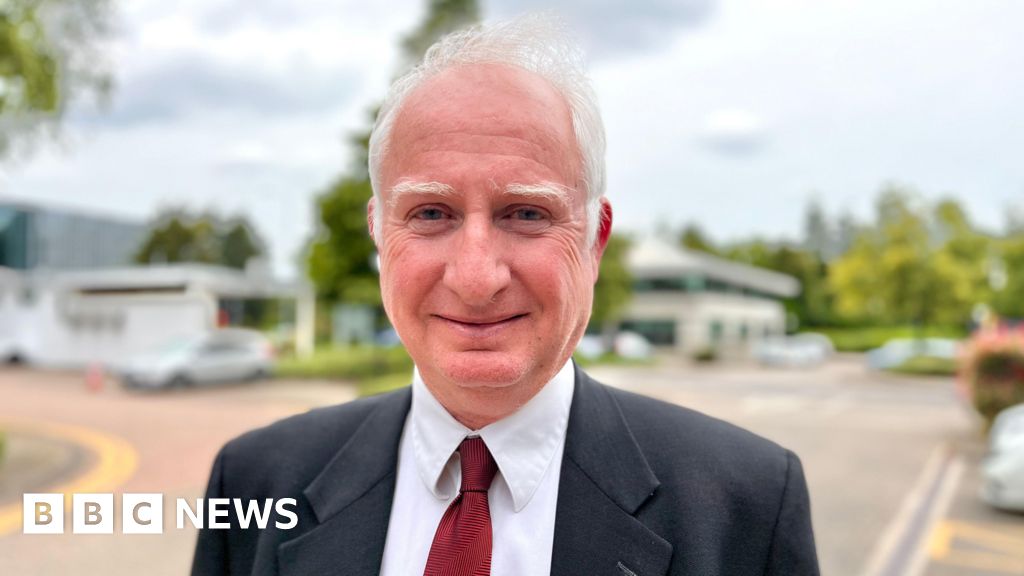ARTICLE AD BOX
 Image source, Niall Carson/PA Media
Image source, Niall Carson/PA Media
Simon Coveney and Chris Heaton-Harris met at Hillsborough Castle last month
By Darran Marshall
BBC News NI Political Correspondent
The Secretary of State Chris Heaton-Harris is to hold bilateral talks with the Irish foreign minister later.
He will host Simon Coveney at Lancaster House in London for a session of the British-Irish Intergovernmental Conference (BIIGC).
The BIIGC usually deals with economic cooperation, political stability and security.
The meeting is also expected to focus on plans to mark the 25th anniversary of the Good Friday Agreement.
There are reports that the British and Irish governments are keen for President Biden to visit Northern Ireland in April.
This will be Mr Heaton-Harris' first meeting of the BIICG but it will be Mr Coveney's seventh, having attended all of the meetings since it was reconvened in 2018.
Norther Ireland Office Minister of State Steve Baker and Irish Justice Minister Helen McEntee will also attend.
Friday's meeting comes as technical negotiations resume between Brussels and London over the Northern Ireland Protocol.
Relations between London, Dublin and Brussels have improved in recent weeks and there is hope of progress in those talks.
However, on Thursday Mr Coveney warned a deal was unlikely before 28 October - that is the deadline for restoring the institutions at Stormont.
The secretary of state has repeatedly pledged to call an election if a new Northern Ireland Executive is not in place by that date.
On Thursday night, Foreign Secretary James Cleverly held a working dinner with Mr Coveney, where the pair discussed Brexit, the war in Ukraine and issues around the UN security council.
What is the British-Irish Intergovernmental conference?
The BIIGC was established as part of the Good Friday Agreement to promote bilateral cooperation between the British and Irish governments.
It deals with issues which are not devolved to Stormont.
Meetings tend to discuss economic cooperation, security and political stability in Northern Ireland.
It did not meet for 11 years between 2007 and 2018 but since reconvening it has met twice a year.
The UK government is represented by the secretary of state for Northern Ireland and Dublin's foreign minister represents the Republic of Ireland's government.
An additional minister from both administrations attends.

 2 years ago
13
2 years ago
13








 English (US)
English (US)